Anthony Albanese’s latest trip show he’s more exposed than ever
Anthony Albanese is at more risk than ever of being turfed out as other world leaders have in pursuit of global solutions to high inflation and the cost of living in a bid to keep voters happy.
National
Don't miss out on the headlines from National. Followed categories will be added to My News.
Waking up to clear blue skies as the waves roll in on Copacabana Beach sounds like paradise, but for Anthony Albanese this week it could not have been a worse backdrop.
Despite the name, the Prime Minister was not on the now-infamous stretch of sand on the NSW Central Coast where he and fiancee Jodie Haydon recently jointly purchased a $4.3 million beach home.
He was some 13,500kms away in the megacity of Rio de Janeiro on the coast of Brazil, preparing for formal talks with Chinese President Xi Jinping.
The bilateral with Mr Xi was the most consequential of the meetings Mr Albanese had across his week-long trip to South America for the G20 leaders’ summit in Rio and the Asia Pacific Economic Cooperation (APEC) in Lima, Peru.
The summits themselves carried far less significance than previous years.
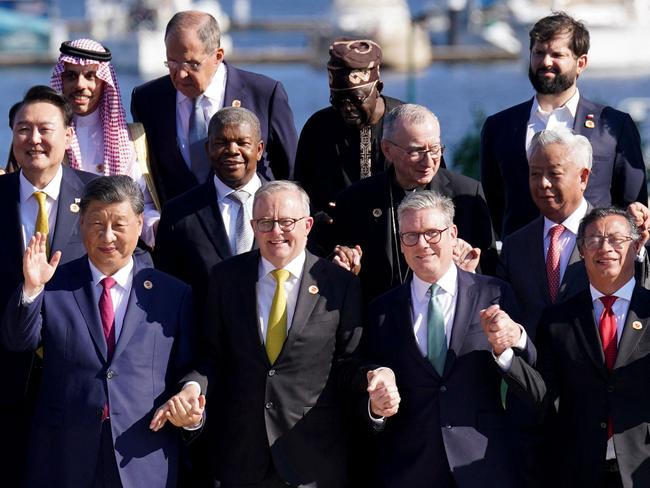
The US President is ordinarily the most important person in the room at these international forums, but with Joe Biden only two months away from leaving office, his “lame duck” status permeated the events.
Tough language on wars in Ukraine and the Middle East, stronger commitments around climate finance and a bid to increase taxes on the world’s billionaires ultimately proved elusive.
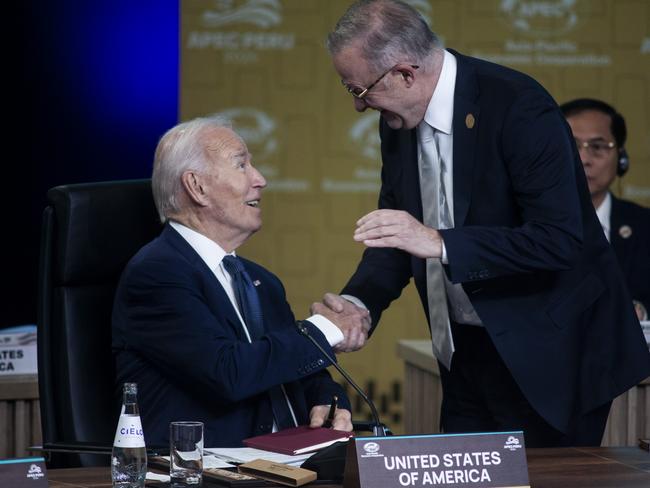
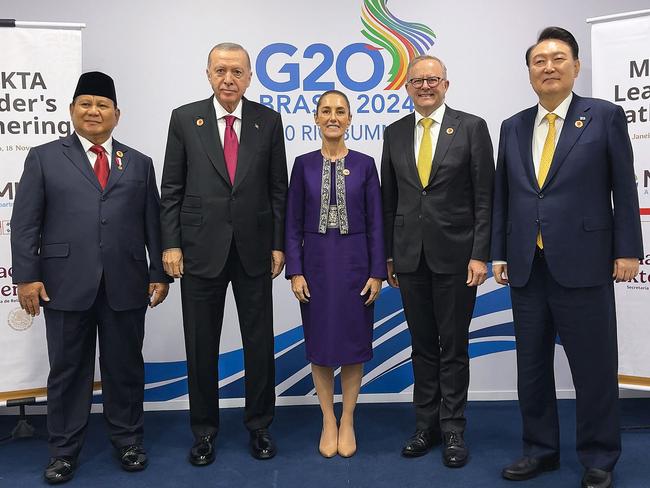
The final statements from both APEC and the G20 are determined by consensus – all countries must agree.
With Russia and China present, there’s always a lot of compromising and watering down of commitments or statements the two powers dislike, but the imminent return of Donald Trump to the world stage even further eroded any incentive to co-operate.
It was only on trade issues where leaders found common ground, with China particularly motivated to build a coalition of supporters to urge Mr Trump not to pursue his pledged tariffs on goods imported to the US.
Implied in the carefully crafted diplomatic statements about the need to preserve “free and fair” trade was a plea for Mr Trump to abandon plans to introduce a tax of up to 20 per cent on goods imported to America, and 60 per cent specifically on Chinese products.
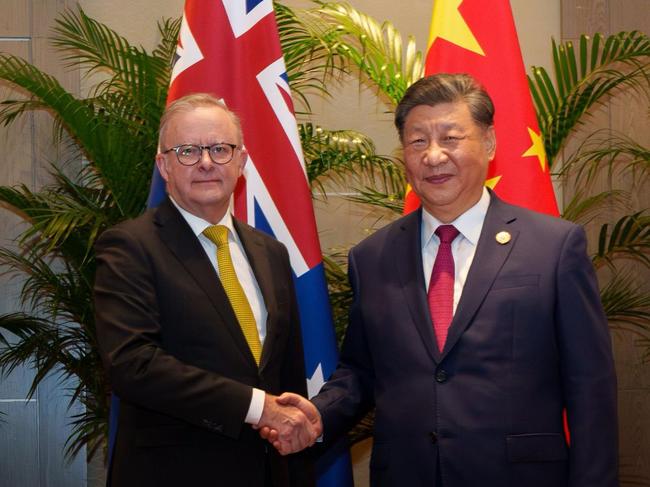
So concerned about the economic impact of this plan – Australia’s Treasurer Jim Chalmers has already warned the country would not be “immune” from a US-China trade war – that Mr Xi launched a desperate charm offensive to recruit countries to stand against protectionism.
Having left Australia in the diplomatic deep freezer for years and blocked more than $20 billion in trade due to various unfounded gripes, China now turned to the very country it had targeted, but this time for support.
The shift in language was foreshadowed in an editorial published by Beijing’s mouthpiece the China Daily, which praised Mr Albanese’s diplomatic approach as something others should emulate.
When face-to-face with Mr Albanese in Brazil, Mr Xi said Australia-China ties had “realised a turnaround” suggesting all was well provided “great care” was taken to maintain the renewed relationship.
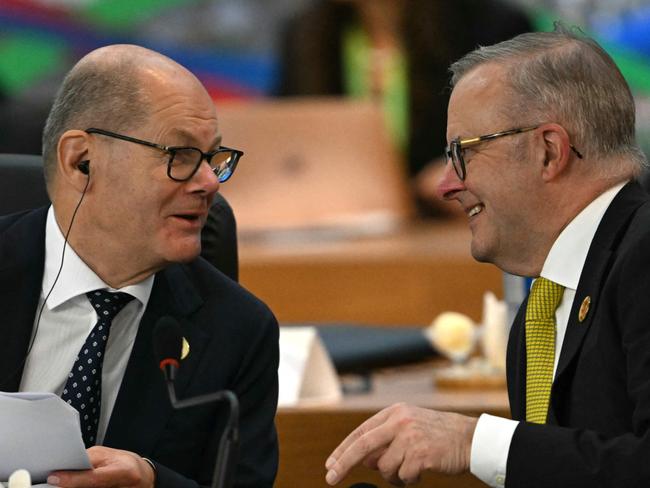
Mr Albanese later distanced himself from that assessment given the range of human rights, security and other disagreements Australia still had with China.
But the big takeaway from Mr Xi’s discussions with leaders – he had some 30 meetings on the sidelines of the summits in total – was of a world power prepared to step into the vacuum likely created if the next Trump Administration withdraws from the USA’s traditional leadership role at these forums.
In 2016 when Mr Trump first took office, both China and Russia seized on the destabilisation to bend summit outcomes more to their will on issues of security, climate and the economy.
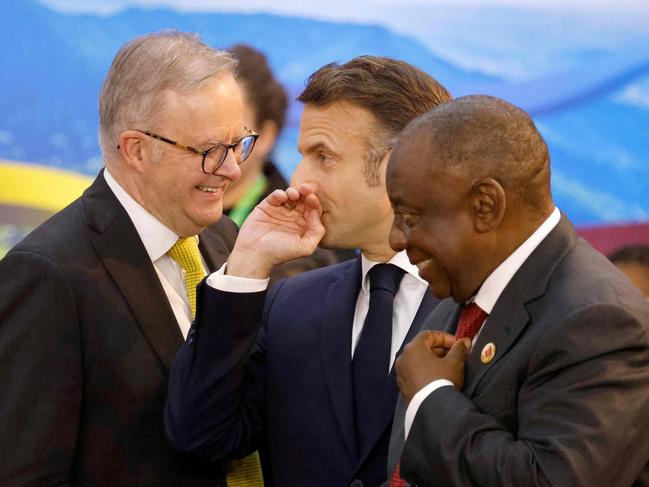
Western leaders fear a resumption of those efforts, particularly in regard to the war in Ukraine, about which UK Prime Minister Keir Starmer and Mr Albanese agreed they must do “whatever it takes” to deny victory to Russian President Vladimir Putin.
Despite the spectre of the incoming Trump White House looming large over proceedings, what happens in the speeches and highly orchestrated “family photo” opps at the summits has rarely been the main game.
In addition to formal talks with Mr Xi, Mr Starmer, Indonesia’s President Prabowo Subianto and others, Mr Albanese had dozens of informal side chats with his international counterparts.
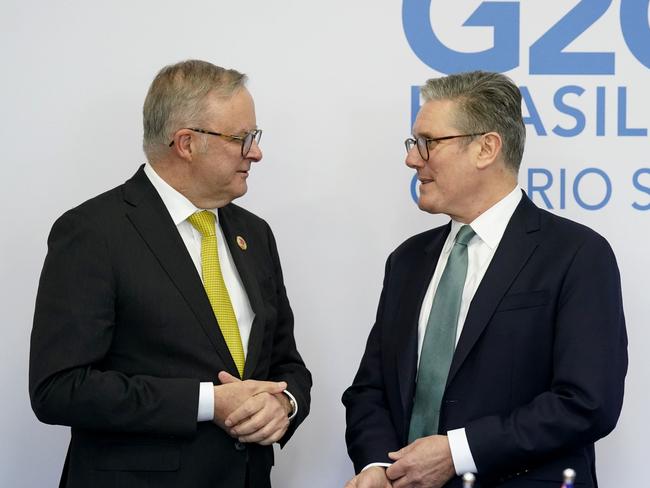
It is on the periphery that strong relationships are forged, the kind that can come most in handy when least expected.
These intangible connections are the biggest benefit to Australia having a presence at the summits, but it’s a difficult sell to the electorate.
The G20 and APEC were expected to be Mr Albanese’s final trip abroad before Australians are due to head to a federal election next year.
That the PM’s Brazilian hotel was situated on a beach with the same name as the postcode of his controversial new holiday home only strengthened the image he has desperately tried to shake since being branded with the moniker “Airbus Albo” for his busy international travelling schedule.
So much of politics is about perception, and the tropics of Brazil were not where Australians struggling with cost of living wanted to see their PM.
Mr Albanese was all too aware of this and went to great lengths to tie his international contributions to the very real domestic concerns of high inflation, power prices, jobs and economic security.
His constant use of the phrase “one in four Australian jobs is dependent on trade” became the running joke of the South America trip.
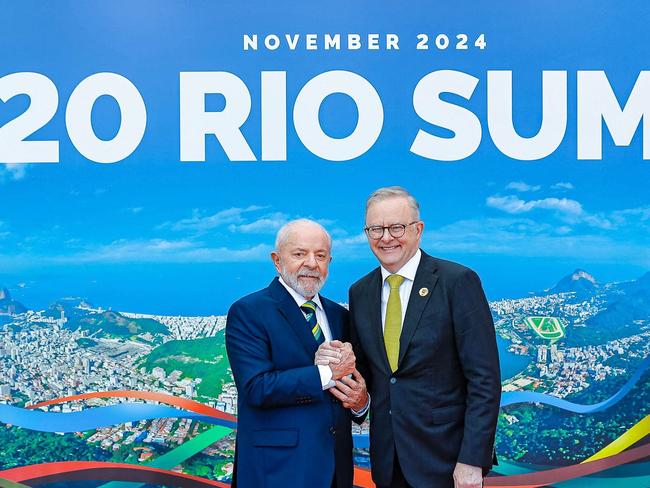
Glad-handing world leaders while sipping a pisco sour sounds ridiculously out of touch, but as anyone on the travelling press pack would attest, the visit was far from glamorous.
The long travel – in this case about 24 hours of flying each way – punishing time zones and gruelling schedules are not the makings of a fun holiday.
During this South America trip, illness swept through the Australian delegation, with Ms Haydon even being forced to stay behind in Brazil at the end of the summit as she was deemed too unwell to fly.
It’s unsurprising that in an interview earlier this year, Mr Albanese told News Corp: “I’d be happy to never get on a plane for the rest of my life”.
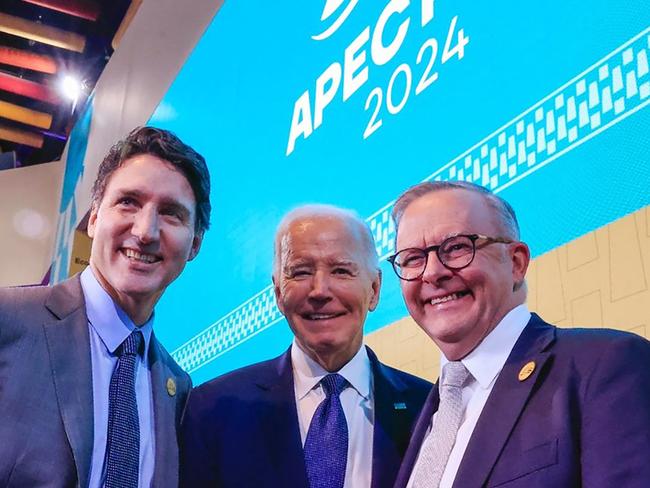
Already 2025 is looking busy, with Australia invited to travel to meet India’s Prime Minister Narendra Modi and Mr Xi for annual talks next year.
A visit to the US to meet with Mr Trump is non-negotiable, and then there’s the next G20 is in South Africa, and APEC in South Korea.
Should Mr Albanese lose the election and the itinerary fall to Opposition Leader Peter Dutton, perhaps instead of “Airbus Albo” commentators will be complaining about a “departure lounge Dutton”.
Since the PM’s first summit season in 2022, the global leadership landscape has changed dramatically, with incumbents across the political spectrum turfed out of office or barely clinging onto power amid huge voter dissatisfaction fuelled by high inflation and the cost of living.
There’s great irony that in pursuing global solutions to those economic problems, Mr Albanese is more exposed than ever to suffering the same fate.
More Coverage
Originally published as Anthony Albanese’s latest trip show he’s more exposed than ever





